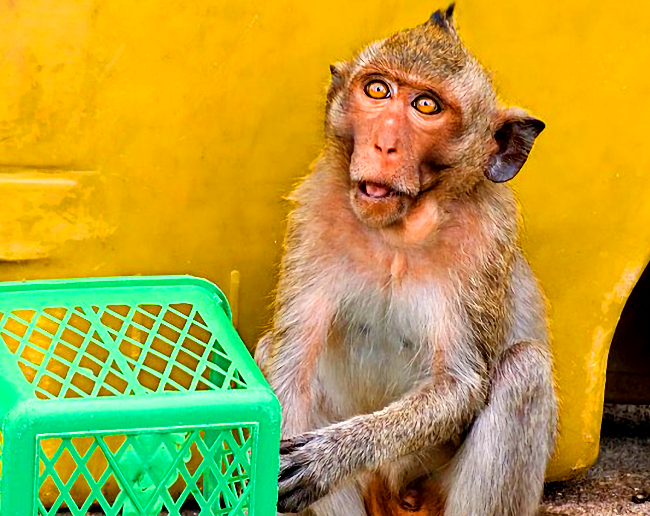According to a 2023 survey, there are an estimated 200,000 macaque monkeys in Thailand. They are found in all parts of the country, but are most common in forests and national parks. Macaque monkeys are social animals and live in groups of up to 100 individuals. They are omnivores and their diet consists of fruits, vegetables, insects, and small animals.
Macaque monkeys are important members of the Thai ecosystem and play a role in seed dispersal and pollination. They are also popular tourist attractions and are often seen at temples and other tourist destinations. However, macaque monkeys can also be pests and have been known to damage crops and steal food from humans.
Macaque monkeys are also known to carry disease such as Hepatitis C. It is best not to touch these monkeys or risk getting bitten.
Monkeys in urban areas are know to harass tourists and steal their things, including expensive phones and cameras.
In recent years, there have been concerns about the decline of macaque monkey populations in Thailand. This is due to a number of factors, including habitat loss, hunting, and the illegal pet trade. In order to protect macaque monkeys, the Thai government has taken a number of steps, including establishing protected areas and cracking down on poaching.
Here are some facts about macaque monkeys in Thailand:
- There are six species of macaque monkeys in Thailand: long-tailed macaque, pig-tailed macaque, rhesus macaque, stump-tailed macaque, Assamese macaque, and northern pig-tailed macaque.
- Macaque monkeys are an important part of Thai culture and folklore. They are often featured in Thai art and literature.
- Macaque monkeys are also used in scientific research. They are particularly useful for studying human diseases and behaviors.
- Macaque monkeys can be dangerous, especially if they feel threatened. It is important to keep your distance from macaque monkeys and not to feed them.


